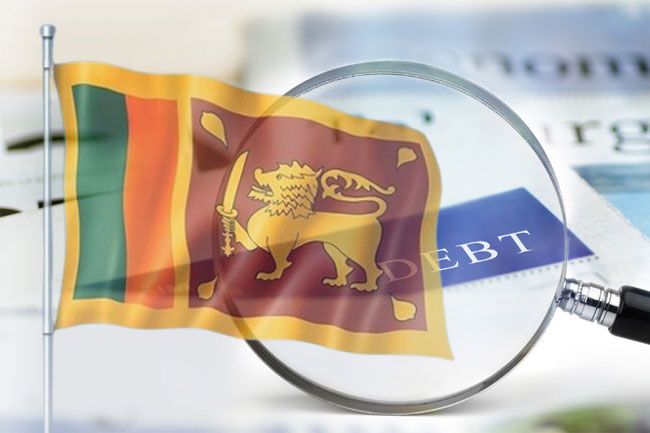Established in 1981, Orient Finance PLC still stands strong as a pioneer amongst the torrent of financing companies. K.M.M Jabir, the Executive Director and the Chief Executive Officer of the company shares his thoughts on Orient Finance’s journey of transformation as the company enters an exciting new era.
During the commencement of the open market economy in Sri Lanka, IFC and the World Bank sought a financial institution to benefit the SME. This called for a horde of creative and innovative individuals seeking financial assistance to conquer their business visions. Stepping out from the traditional evaluations where customers were stringently eagle-eyed through their collaterals, Orient Finance utilized the paramount of the open market economy. Setting up their company during the era of market forces, Orient Finance stepped up as a risk-taking financial institution to assist the small entrepreneurs with admiration for creativity and innovation.
“We started in 1981. Forty years of integrity is placed on us by our customers. The momentum still continues”, Jabir states when highlighting the emergence of the company. He further emphasizes that the multiple records of innovative leasing solutions over the years have expanded their presence with 31 branches in major cities, building a comprehensive network of operations within the country. Overcoming massive hindrances, “1980s economic crisis, the 30 years civil war, fluctuating economy”, Orient finance continues to thrive in the country’s finance market.
Jabir shares that the challenges he faced as a new CEO in the company involved a lot of diligent decisions. By reviewing all the fundamental aspects of business, remodeling the business concepts, finding appropriate managers, and approaching internal and external sources, Jabir redirected the company’s strategic initiative and problem-solving procedures from scratch.
Managers and employees were trained to diverge risks and converge problem-solving techniques to facilitate the progress of the company. “I frequently reminded, educated, and addressed the importance of revamping the company and the methodologies used”, Jabir added when describing the measures taken to instill positivity with his employees.
Orient Finance was able to sketch a strategic plan involving all their stakeholders; the employees, management, shareholders, and investors. Guidelines and expectations were elucidated, intensive virtual communications were scheduled, customers were educated, one-to-one customer meetings, customer needs, and wants were understood, problems were addressed and solutions were improvised, creating a win-win situation for the customers and the company. Jabir stands proud of the transformation from loss to profit, concluding the company’s financial year on a positive note amidst the economic downturn due to the pandemic.
The post-COVID new-normal has caused a few alterations at Orient Finance too. With the novel changes in the Central Bank regulations and the introduction of the moratorium, the company approached their customers differently, to facilitate the resurrection of their businesses. Customers were provided the flexibility to lay their concerns in writing and report their current business model, their customer business model, their customer targets, etc. covering a larger spectrum of specifics to give the employees at Orient Finance their first-hand expectations. Most importantly, Orient Finance was able to critically analyze and stipulate customized solutions to their customers by reaching out to them personally.
“We supported them to revise their businesses, we guided them and educated them on how to survive a crisis management, and we prepared our employees to meet the demanded task”, Jabir added. One-to-one discussions with their customers were followed by boosting and revolutionizing solutions like facilitating monetary results to start their business, reworking business models to suit cash flows, and also strategizing business plans, to assist customers to remain enduring in their businesses. The implementation of this distinct methodology within Orient Finance has fecundated their business alongside their customer’s intentions while mitigating the pandemic challenges.
Jabir outlines the strategic plan sketched to follow a productive and dynamic 3 years ahead. He believes that customer survival is vital for the company to survive. While meeting new guidelines imposed by the Central Bank, Jabir aims to increase the company’s asset base to 20 billion within the few years to come. He also focuses on expanding their thresholds by introducing new products and services to meet the market demands. Jabir also highlights a few upcoming implementations like operating leasing facilities, working capital financing, introducing short-term revolving loans, trade finance, and even providing trade-in facilities for vehicles. “If a customer has an old vehicle and wants a new one, we will come forward and buy the old vehicle and trade you a new one!”, Jabir claims.
Furthermore, Orient Finance plans on working with the MSME; micro small, medium enterprises, financing them, and being the backbone of progress for the MSME sector. Jabir also points to the possibility of importing vehicles once the import ban is removed and also submerges into real estate projects within the next 3 years.
He also adds, “We are thrilled and grateful to our employees and our customers — all those who have contributed to our success over the last 40 years. With this support and the backing of our parent company Janashakthi Group we have renewed our strength and will continue to meet and surpass our goals. Being a member of the Janashakthi Group that operates in the Insurance, Finance, Investment, and Real estate sectors gives us the opportunity to access expertise across the Group and utilize combined strengths for sustained growth. As we enter this exciting new era, we look forward to the next 40 years of excellence.”
Jabir concludes his statement with an ideology he follows every day: “problems often come with opportunities. We shouldn’t lose it; we should hold on to it.”

